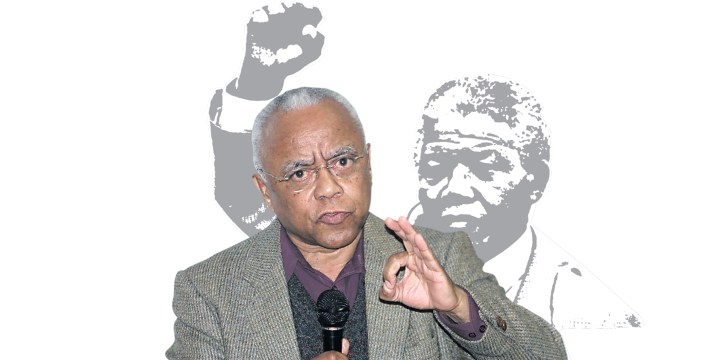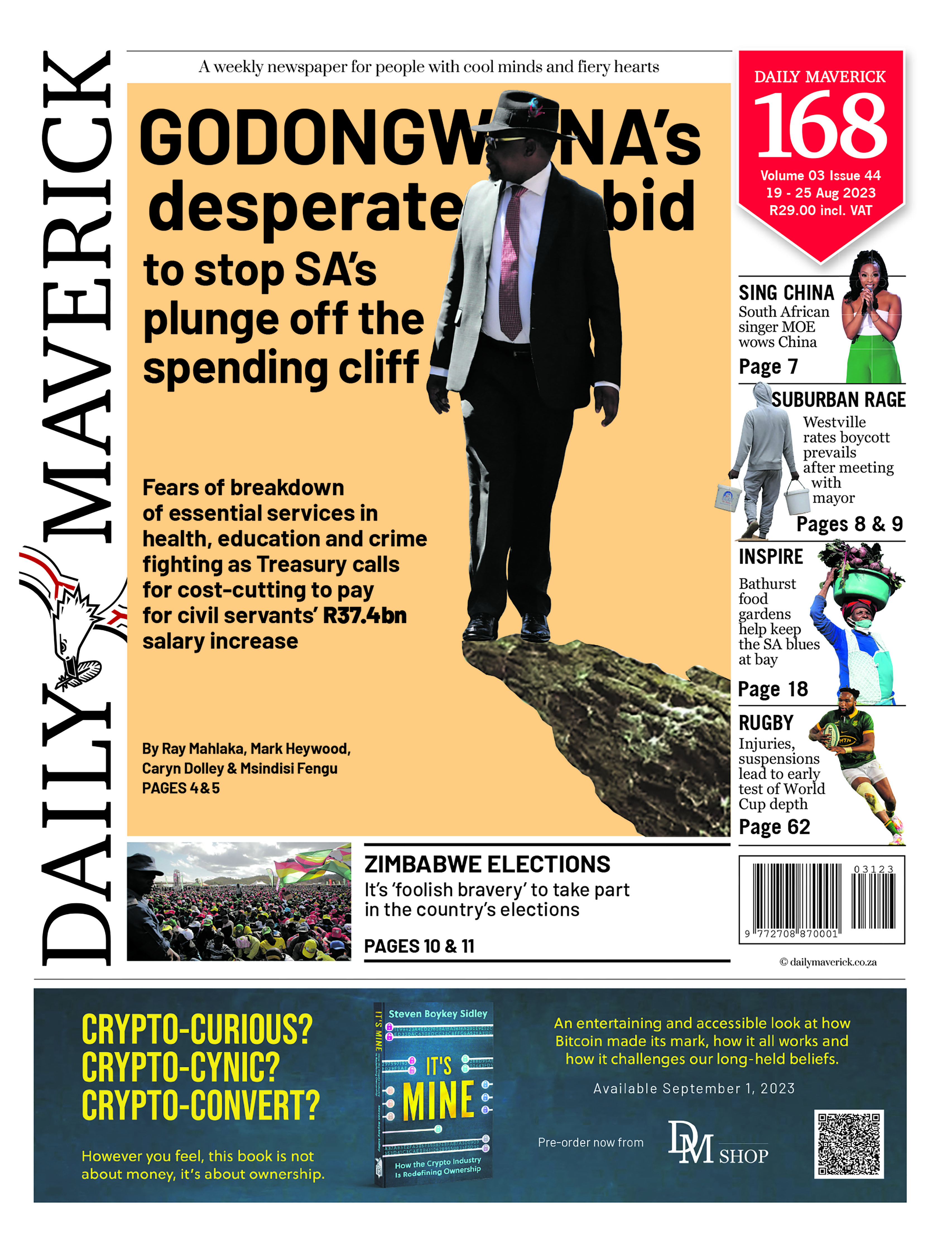BEACON FOR SOCIAL JUSTICE
Neville Alexander – a revolutionary scholar’s struggle against racial capitalism marked by radical humanism

The scholar-activist spent a decade as a political prisoner on Robben Island with Nelson Mandela and others before emerging as one of South Africa’s foremost public intellectuals.
Eleven years ago this month, shortly after the Marikana Massacre, Neville Alexander, who seamlessly combined rigorous scholarship with activism, died at the age of 75.
Alexander’s major intellectual contributions centred on the “national question”, language, education, culture, as well as on his thoughts about and direct participation in organisational questions in the struggle against racial capitalism in South Africa.
He had a long view of history that fuelled his consistent optimism. He was convinced that in the contradictory social spaces that characterised unequal relations and the struggles against it by the poor and workers, there were possibilities for a genuine democratic future.
Alexander was appalled by the “looting of state resources” and profligacy he saw in post-apartheid society, and he was always reflective and humble and never wavered from his own self-description: a non-dogmatic Marxist, pan-Africanist and internationalist.
One of the most endearing characteristics of Alexander was his attentiveness to others and his self-effacing sacrifice and tireless commitment to a radical humanism, which made him such an outstanding revolutionary scholar.
Making a nation
Alexander was both a critical social analyst and an “argumentative” intellectual with a didactic commitment to organising the premises and practices he hoped to engender for social justice.
He refers to this issue in his seminal contribution to an analysis of state, society and struggle in One Azania, One Nation: The National Question in South Africa, which he published in 1979 under the nom de guerre No Sizwe, and which could be regarded as perhaps the foundational thesis for all his subsequent writing and actions.
As we now know, Alexander clandestinely began drafting this book on Robben Island and completed it during his period of house arrest in Cape Town from 1974 to 1979. He was motivated to start writing the book after a celebrated debate with Nelson Mandela in Robben Island Prison.
Read more in Daily Maverick: Neville Alexander – a linguistic revolutionary
In his own words: “I wrote [the book] really because of the debates I had with Mandela on the Island about post-apartheid South Africa, the new nation, nation-building, what it all means in terms of racial prejudice, racial attitudes, racial categories, class, gender and so on…
“The discussion took almost two years; we used to meet once a week and discuss whether there is a nation and how we would build a nation. Our position was that there is no nation, and we have to build a nation, and that this implied a whole lot of things about education, structural change and identity politics and so on.”
The necessity of demystifying ideas about “race” so dominant in South African society led him to set out a radical “non-racial” alternative that enjoined those opposed to racism to engage in anti-racist practices. These actions were intended to demonstrate the possibilities for developing forms of consciousness which counteracted the pernicious influence of racist ideas, and simultaneously to build the political and social movement for an anti-racist society.
Alexander’s prescient approach was intended to avoid the problem of making ‘racial’ difference a continuing political creed even in an ostensibly ‘non-racial’ society.
For Alexander, there is no natural biological essence to race; rather, its meaning is formed through social and political processes. Even though “race” is a myth, racism is real and has very real effects: the divisions and hierarchies created through the idea of “race” bolster inequities and domination at every level of society.
For Alexander, the idea of “anti-racism” was simultaneously about the political and organisational forms of resistance to racial capitalism. He warned that the weaknesses evinced by ideologues who maintained the unassailability of “race consciousness”, and who thus favoured conceptions of “multiracialism” and even “non-racialism”, led inevitably to the forms of racialised political mobilisation whose consequences were likely to lead to the very sociopolitical morass that faces society today.
Alexander’s prescient approach was intended to avoid the problem of making “racial” difference a continuing political creed even in an ostensibly “non-racial” society.
His overarching purpose was to “foment” a political discussion about nationhood and how it might be constructed against the long history of racist division and the entrenchment of its forms of consciousness.
The choice of “race” as the primary metaphor for political division was self-evident, given its palpability and presence in the lives of oppressed and exploited communities.
Yet it was simultaneously – in his writings about forms of oppression – not reducible to issues of “race” because of his recognition that “almost everything, from religion to politics to economic systems to what we refer to as values, has to be revisited, reconceptualised and rearticulated in a language that frees us from the clichés and shibboleths of the 19th and 20th centuries”.
The deeper struggle
Alexander’s enduring contribution to the theory of racial capitalism comes from Nation and Ethnicity in South Africa, his address to the 1983 National Forum meeting in Hammanskraal, near Pretoria.
Spurred by a call from Black Consciousness activists, the National Forum brought together about 200 organisations and 800 delegates, most of whom were to the left of the ANC.
Even towards the end of his life, he was determined to engage publicly about his perspectives on both historical and everyday issues in a conscious attempt to bring the most pressing questions facing society into the public arena. This was especially so in the context of the egregious failures he saw in the post-apartheid system.
He lamented “…the palpable signs of social breakdown all around us: the ever more blatant examples of greed and corruption involving public figures, who are expected to be the role models for our youth; the unspeakable abuse of children, of the aged and of women; the smug dishonesty, indiscipline and slothfulness of those who are paid to render public services… the unthinkable violence in so many communities, unknown even in conditions of conventional warfare; the boundary-crossing abuse of all manner of drugs in all layers of society; … the trashing of the public health system; in short, the general mayhem and apparently suicidal chaos that ordinary people experience in their daily lives. These things are our everyday reality.”
An uncanny ability to predict South Africa’s political trajectory made Alexander unpopular with members of the post-apartheid ruling establishment who were often unsettled by his critique of the dominant, largely celebratory discourse of national liberation and his condemnation of crony capitalism and the looting of public resources.
But he was deeply respected because of his modest and humble lifestyle and because of the dignified, humanistic and principled positions he took on all issues and practices.
Read more in Daily Maverick: What it means to be – or not be – a communist in South Africa today
Alexander’s critical interventions are profoundly important for sustaining the life of struggle against rapacious and uncaring political and social systems by providing an analytical framework that can be useful, at any time, for understanding and organising against the powerful global and national interests at the root of inhumanity. DM
This is an edited extract from Against Racial Capitalism: Selected Writings of Neville Alexander, edited by Salim Vally and Enver Motala and published by Pluto Press.
This story first appeared in our weekly Daily Maverick 168 newspaper, which is available countrywide for R29.




















 Become an Insider
Become an Insider
Comments - Please login in order to comment.